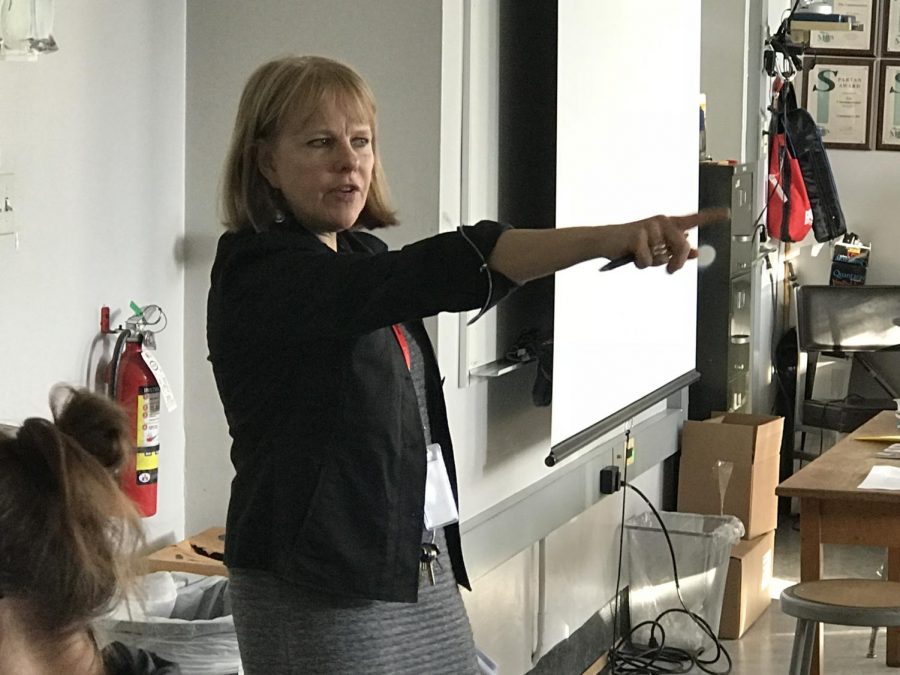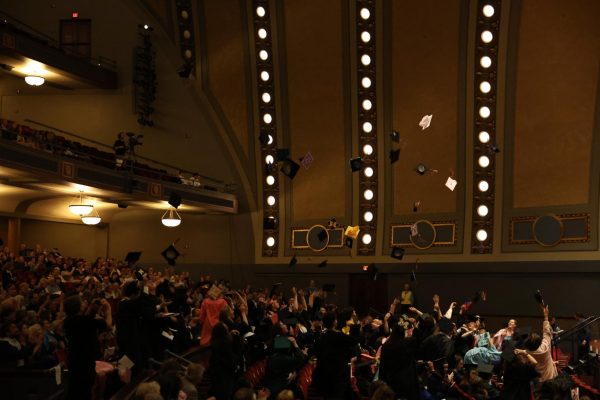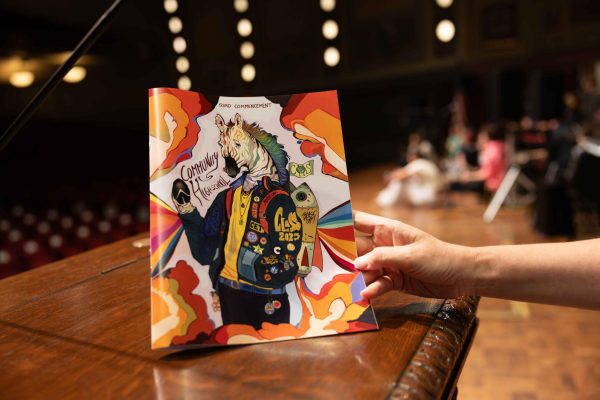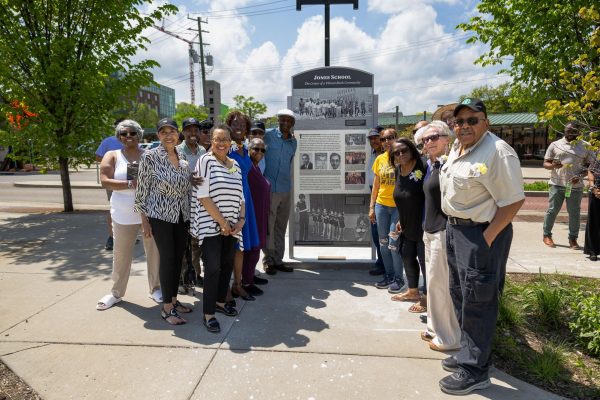The Poetry Slam: The Voice of Today
The definition of “voice,” is the right to express an opinion. Though the right of an opinion may be protected by the United States Constitution, the courage to express that opinion is all up to the people. Courage is sometimes not an easy thing to come by, especially in teenage years, when pressure is put on teens to find their career path, their passion, and most importantly, their voice. On March 2nd, Community High School students will use courage and their to perform in front of their classmates in something called a poetry slam.
A poetry slam is usually the competitive reading of poetry. This particular slam has been around for quite a while, but only came to community 10-12 years ago. All across the Ann Arbor, kids hope to make the city team so they can go on to compete for slam champion. Ellen Stone, the co-teacher for poetry class and advisor for poetry club in CHS was at there when the slam came to Community. “Slamming is sort of an old idea that if you make poetry sort of competitive it makes it more fun and it makes people more interested in it,” says Stone.
During adolescence, the brain is undergoing important changes in both structure and the way it works. This makes us more vulnerable to things like peer pressure. In this difficult time, it is often helpful for kids to have an emotional outlet, or a way to express themselves. Stone uses poetry to communicate her emotions. “[With poetry] you can say ‘here’s what I’m thinking about,’ or ‘here’s what matters to me’, or ‘here’s what I’m scared about,’ or ‘here’s what I’m mad about,’ or’ here’s what is just bringing me so much joy,’ and you can create it,” Stone says, “It’s art and you can share it with somebody else and sometimes they’ll say, ‘oh my gosh I know exactly what you’re talking about. I have felt that way, and that is such a gift.”
Poetry has evolved over the years. In her English classes, Stone used to study the old poets, but they never “[spoke] to her.” She did not discover contemporary poetry until college, when it “hit her like a ton of bricks.” It was shocking to her, hearing what people were writing about now, and seeing how different it is than older poetry. Stone defines contemporary poetry as “poetry in our voice, the voice of today.”
“People are writing about what’s happening right now,” Stone says. “They’re writing about police violence and inequality and they’re writing about the current administration and they’re writing about civil rights and they’re writing about the earth and what’s happening to it. It’s really a social justice issue right now,”
In today’s world, where the courage to express can be hard to come by, Stone advocates for young people to find their voice, and utilize it. “I think the most important thing is that when you’re in high school, you know what your voice is,” she says. “That you can refine your voice. This is what I think, this is what I feel, and then if you can put it out there, that’s such good practice for whatever you do. Whether you’re a lawyer, or a doctor, or a teacher, or an economist, you have to have a voice. So if you can fine-tune that voice in high school and say ‘this is who I am,’ and ‘this is what I think,’ and ‘this is what’s important to me,’ that will take you everywhere. It’s just a critical skill in art or just in life.”
(sources – https://www.ncbi.nlm.nih.gov/pmc/articles/PMC2779518/, https://www.unicef-irc.org/article/1149-the-adolescent-brain-vulnerability-and-opportunity.html)

When she's not working on the Communicator, she can be found practicing jazz, preparing for a Mock Trial competition or helping run feminist club. Some fun facts about Geneve are as follows: she was born with an extra thumb that has since been removed; she loves to sing and dance, even though she is not good at either.









